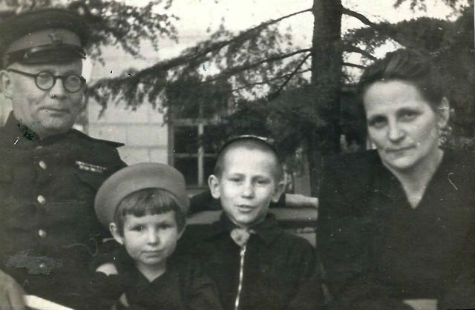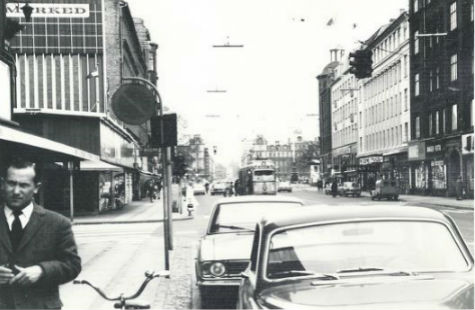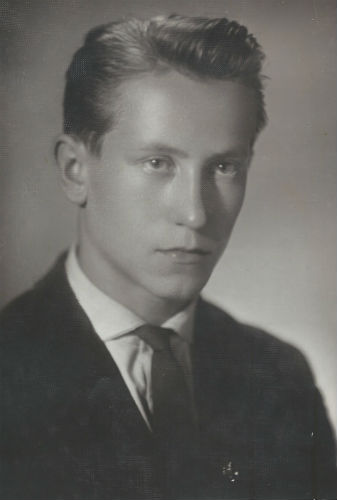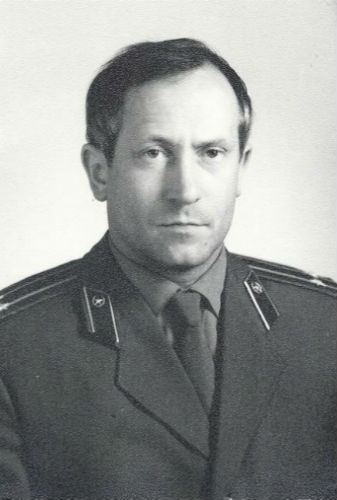- Home |
- Search Results |
- The double agent who changed the course of history | Ben Macintyre
The double agent who changed the course of history | Ben Macintyre
A double agent for MI6, Oleg Gordievsky helped avert a nuclear confrontation and bring about the end of the Cold War. Author and historian Ben Macintyre reveals this incredible story of treachery and betrayal.



Gordievsky was trained in the very same institution where another young KGB recruit, Vladimir Putin, would learn his spycraft a decade later.
Spies tend to make extravagant claims for their craft, but the reality of espionage is that it frequently makes little lasting difference. Politicians treasure classified information because it is secret, which does not necessarily render it more reliable than openly accessible information, and frequently makes it less so. If the enemy has spies in your camp, and you have spies in his, the world may be a little safer, but essentially you end up where you started, somewhere on the arcane and unquantifiable spectrum of ‘I know that you know that I know…’
Yet very occasionally spies have a profound impact on history. The breaking of the Enigma code shortened the Second World War by at least a year. I have written in Agent Zigzag, Operation Mincemeat and Double Cross of the successful espionage and strategic deceptions that underpinned the Allied invasion of Sicily and the D-Day landings. The Soviet penetration of Western intelligence in the 1930s and 1940s gave Stalin a crucial advantage in his dealings with the West.
The pantheon of world-changing spies is small and select, and Oleg Gordievsky is in it: he opened up the inner workings of the KGB at a pivotal juncture in history, revealing not just what Soviet intelligence was doing (and not doing), but what the Kremlin was thinking and planning, and in so doing transformed the way the West thought about the Soviet Union. He risked his life to betray his country, and helped to avert a full scale nuclear confrontation.
He rose to become head of the KGB in London. When Mikhail Gorbachev visited Britain in 1984, Gordievsky was secretly briefing both sides: with the guidance of MI6, he was telling the Russians what to say to the British, and simultaneously warning the British what the Soviet delegation would say to them. Mrs Thatcher later described Gorbachev as ‘a man one could do business with.’ The business breakthrough was made possible, in part, by Gordievsky.
Gordievsky’s very brilliance was his undoing. The intelligence he provided was so important it was being passed all the way to the Oval Office, but without MI6 ever revealing where it came from. The CIA likes to know what it is receiving, and from whom, and so a special task force was established to try to establish who the British had recruited inside the KGB.
What the CIA did not now, however, was that its own head of counter-intelligence was himself a KGB spy: the KGB was spying on the CIA, which was secretly spying on MI6, its own ally, which was spying on the KGB. Here was a perfect circle of espionage. May 1985, Gordievsky was summoned back to Moscow, supposedly to be anointed as KGB chief in London. After a furious debate inside MI6, the final decision on whether to go was left to Gordievsky. In an act of monumental bravery, he decided to return… with catastrophic consequences.



Over time, this model Soviet spy would evolve into a dedicated secret enemy of communism, and the most important double agent ever recruited by British intelligence.
Gordievsky inflicted more damage on Soviet intelligence than any other single spy. Communism eventually collapsed, but the Russian intelligence services have never forgiven the man who comprehensively deceived them, and helped to bring about the end of the Cold War.
Soon after the Skripal poisoning, Andrei Lugovoi, the former KGB bodyguard accused of murdering the defector Alexander Litvinenko a decade earlier, offered an intriguing response when asked whether Russia had also poisoned Skripal: ‘If we had to kill anyone, Gordievsky was the one. He was smuggled out of the country and sentenced here to death in absentia.’ Putin and his people have not forgotten.
Lugovoi’s remark was, in a way, a backhanded compliment to the most successful undercover agent of modern times, a complex sort of hero, a spy and traitor.